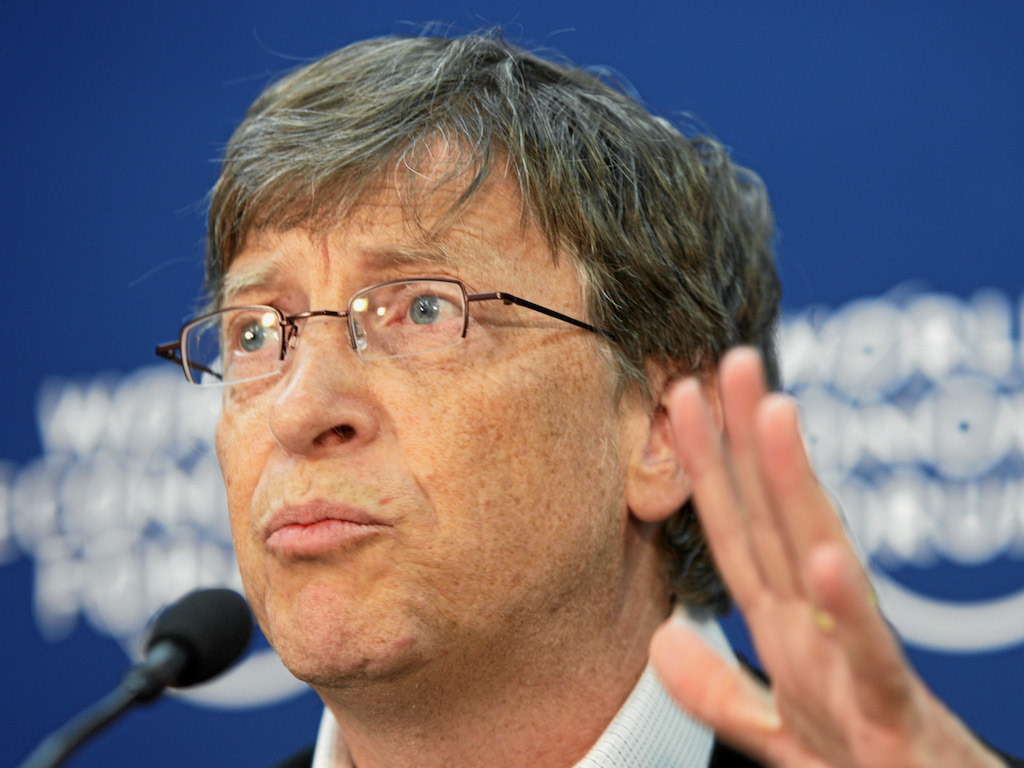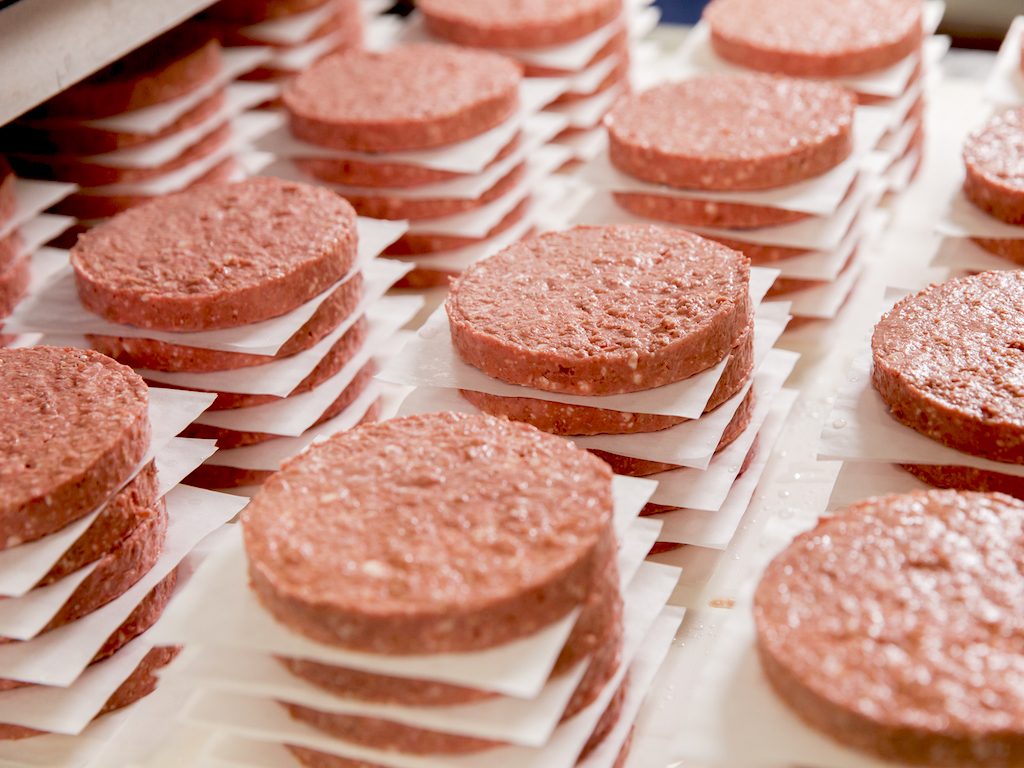Bill Gates On 60 Minutes: ‘Alternative Protein Crucial To Solve Climate Crisis’, Says Billionaire In New Book

5 Mins Read
Bill Gates, the Microsoft founder and billionaire, has hailed alternative proteins and other innovative technologies as critical to the fight against climate change. In a recent interview on CBS News’ 60 Minutes to promote his new book, How to Avoid a Climate Disaster, Gates outlines what he believes is the ultimate plan to tackle global heating.
“Without innovation, we will not solve climate change. We won’t even come close,” Gates tells Anderson Cooper, reporting for 60 Minutes in an episode that aired February 14th 2021.
It’s the heart of his message in his new book How to Avoid a Climate Disaster, in which the Microsoft founder – who is now the co-chair of the Bill and Melinda Gates Foundation and chair of his climate-focused innovation fund Breakthrough Energy Ventures – lays out what he thinks is required to solve the biggest planetary emergency of today.
In the 60 Minutes interview, Gates says that alternative protein innovation will be a core part of the fight to halt global heating, with current forms of animal agriculture accounting for a whopping 18% of global greenhouse gas emissions. His view is in line with the scientific consensus, with experts highlighting the urgent need to shift to plant-centric diets for the world to stand a chance at meeting our global carbon budget outlined under the Paris accord.
This company, Nature’s Fynd, is using fungi. And then they turn them into sausages and yogurt. Pretty amazing.
Bill Gates

Because cattle rearing is particularly carbon-intensive, topping around 4% of all carbon emissions in the world, Gates himself has backed two food techs creating plant-based substitutes for beef: Impossible Foods and Beyond Meat – which also happen to be the two most famous brands in the industry today.
The plant-based meat makers get a shout-out during the show, but Gates says that other innovative ways of producing alternative meats will also be critical to shift mass consumption to more sustainable proteins. Nature’s Fynd, a firm creating an entirely novel protein using fungi, is another startup Gates is supporting.
“This company, Nature’s Fynd, is using fungi. And then they turn them into sausages and yogurt. Pretty amazing,” Gates says.
Other key parts of his climate plan includes an enormous overhaul of our current energy system, and Gates is especially keen on a breakthrough in nuclear energy, which he believes is one of the missing pieces of the puzzle to a net-zero future. While the technology is not yet a reality, researchers recently suggested that we’re not far away from seeing the world’s first nuclear fusion reactor.

But not everyone is convinced about the billionaire’s plan. When asked by Cooper about his own personal consumption habits, such as flying private planes and whether he is the “right messenger” on the issue of climate action, Gates admits the irony.
“I probably have one of the highest greenhouse gas footprints of anyone on the planet. Personal flying alone is gigantic.”
Now, I’m spending quite a bit to buy aviation fuel that was made with plants. You know, I switched to an electric car. I use solar panels. I’m paying a company that actually, at a very high price, can pull a bit of carbon out of the air and stick it underground.
Bill Gates
But he believes that his spending on offsetting technologies and adopting clean energy solutions is effective to bring his personal footprint down – and that’s why he believes innovation will help make our current consumption habits more sustainable and compatible with the climate fight.
“Now, I’m spending quite a bit to buy aviation fuel that was made with plants. You know, I switched to an electric car. I use solar panels. I’m paying a company that actually, at a very high price, can pull a bit of carbon out of the air and stick it underground,” Gates says on 60 Minutes.
In a separate interview with BBC chief environment correspondent Justin Rowlatt, Gates reiterates the same point, and says that alongside political action from governments, our individual choices – such as his biofuel-powered private jet trips and offsetting the emissions of his billionaire lifestyle – are a part of the solution.
“If you buy an electric car, a hamburger made of a meat substitute, an electric heat pump for your home you are helping increase the production of these products and therefore helping drive prices down.”
Critics, however, disagree that Gates’ climate plan is sufficient, with some even pointing out that parts of his plan are part of the problem driving ecological destruction – though it’s hard to ignore the global attention that he as a public figure has garnered on the issue to at least kickstart the conversation on the climate emergency.
The more you spend, the more you destroy. We all deceive ourselves about the amount of harm we do. Gates turns out to be no exception.
George Monbiot
“Bill Gates’ plan to save the world includes flying just as much as ever, including private jets (in which he’s investing), and using biofuels,” commented Twitter user Gordon Struth. “We’re in a car speeding towards a cliff and instead of applying the brakes or lifting off the accelerator, Bill Gates is in the back seat trying to work out how to make it fly. This is because the rich believe in what Greta Thunberg called ‘fairytales of eternal economic growth’”.
Renowned environmental journalist, Guardian columnist and activist George Monbiot also chimed in, writing in a Tweet: “Perhaps it’s unsurprising that a billionaire has no interest in structural and political change. But Bill Gates’ belief that he can save the planet with technologies alone, while dissing popular movements and systemic transformation, is as naive as it is arrogant.”
“Fundamentally, the problem is too much money. However green a person thinks they are, their destructive impacts match their spending. The more you spend, the more you destroy. We all deceive ourselves about the amount of harm we do. Gates turns out to be no exception.”
Lead image courtesy of World Economic Forum.



